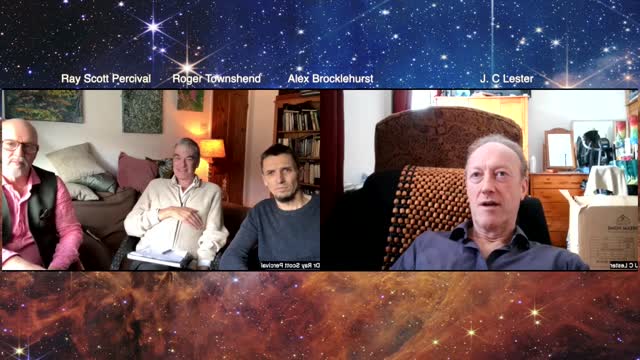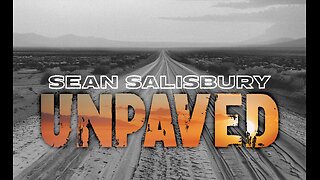Premium Only Content

Dr J C Lester on his New Theory of Liberty. (part 2 of 3.)
A brief statement of Lester's five-step libertarian philosophical theory
The main philosophical problem is that most libertarians don’t have an explicit theory of liberty. Consequently, for instance, they can’t explain how some property rights fit liberty while others don’t. This theory aims to make explicit the philosophical theory that is entailed by libertarianism. This is done by distinguishing five steps that other libertarians usually conflate to varying degrees.
Note that liberty is conceptually about the absence of some sort of constraint on something. But interpersonal (or social) liberty is about the absence of some sort of constraint on people by each other.
First, therefore, we must ask: in what way—at its most abstract—do we want other people not to constrain us? We want them not to initiate constraints on our preference-satisfaction. This is libertarian liberty-in-itself.
Second, how do we theoretically solve the obvious problem of clashing preferences in practice? When “the absence of initiated interpersonal constraints on preference satisfaction” (initiated impositions, for short) is not fully possible, then this can only be maximised in the most plausible way.
Third, what are the practical implications of applying this abstract theory? In a state of nature, applying it gives us three prima facie rules of maximal liberty-in-practice: 1) initial ultimate control of one’s body, 2) initial ultimate control of one’s used resources, and 3) consensual interpersonal interactions and resource transfers. Any other rules would typically initiate more interpersonal impositions.
Fourth, how do these practical implications relate to property? To institutionalise these practical rules as legally enforceable property rights is an additional logical step. Thus, we see that property, even self-ownership, is only the fourth step rather than the first (let alone an axiom).
Fifth, where do normative rights, morals, and values fit into the positive libertarian system? They are a further separate issue. Thus, they are only the fifth step rather than the first (let alone an axiom).
There is an important secondary, epistemological, problem. This is that most libertarians are justificationists (or foundationists) rather than critical rationalists. But that will not be discussed here.
———Dr J. C. Lester
https://www.meste.org/ojs/index.php/mest/article/view/1279
https://www.amazon.co.uk/Escape-Leviathan-Libertarianism-without-Justificationism/dp/1908684089
-
 LIVE
LIVE
Barry Cunningham
2 hours agoMUST SEE: PRESIDENT TRUMP NATO PRESSER! AND NEW YORK CITY MAYORAL DEBATE!
1,544 watching -
 13:15
13:15
Cash Jordan
4 hours ago"INVASION" Mob STRIKES Chicago Jail… FRONTLINE Marines IGNORE Judge, SMASH Illegals
912 -
 23:18
23:18
Lady Decade
6 hours agoThe Diversity Lie Gaming Refuses To Talk About
92 -
 1:51:13
1:51:13
Glenn Greenwald
5 hours agoTucker Carlson Speaks at Turning Point, Prompting Cheers and Controversy; More Evidence of Israeli Atrocities Amid Fragile Ceasefire; Tommy Robinson Submits to Re-Education in Israel | SYSTEM UPDATE #536
81K78 -
 12:12
12:12
ARFCOM News
5 hours ago $0.83 earnedThe REAL Reason Glock Bent The Knee + Searched Just For OWNING A Gun?!? + Lemon's Cringe 2A Mistake
1.94K6 -
 LIVE
LIVE
LFA TV
22 hours agoLIVE & BREAKING NEWS! | WEDNESDAY 10/22/25
623 watching -
 1:03:22
1:03:22
BonginoReport
4 hours agoAmerican Political Violence Rages On - Nightly Scroll w/ Hayley Caronia (Ep.161)
97.9K52 -
 LIVE
LIVE
The Jimmy Dore Show
3 hours agoTrump’s MIDDLE FINGER to US Beef Ranchers! Dem Senate Candidate COVERS UP N@zi Tattoo! w/Twila Brase
8,027 watching -
 6:13
6:13
Sean Unpaved
2 hours agoKalshi's Pick of the Day: Who Could Be Florida's Next HC?
8.5K2 -
 7:43:03
7:43:03
Dr Disrespect
9 hours ago🔴LIVE - DR DISRESPECT - BATTLEFIELD 6 KILL CHALLENGE - VS VISS
75.3K5